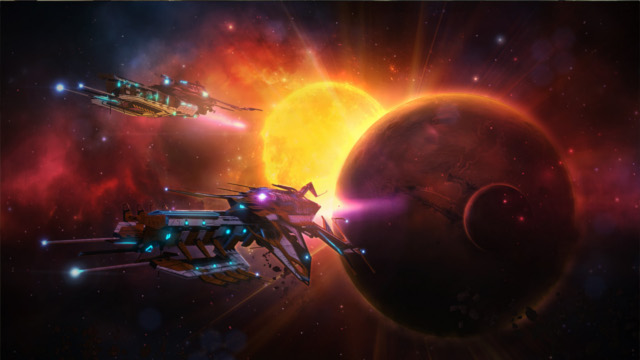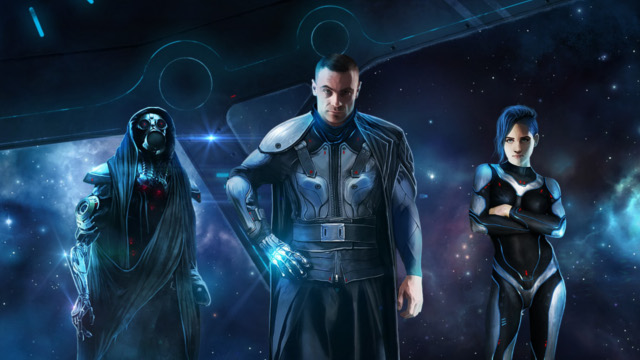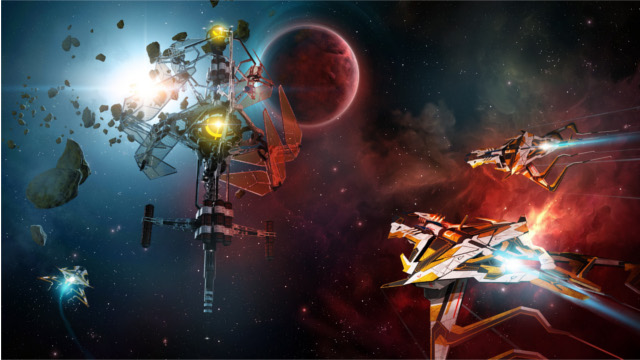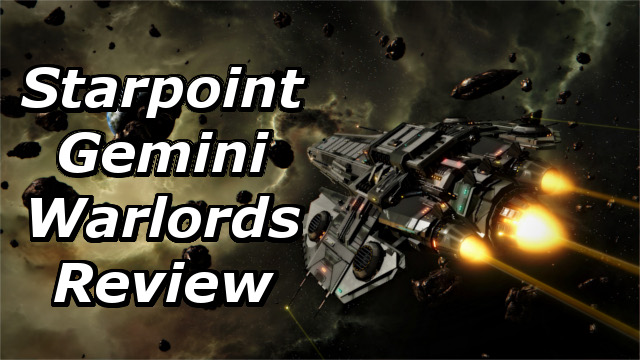Starpoint Gemini Warlords is a space flight sim, RPG, 4X strategy game developed by the Croatian-based studio Little Green Men Games. It serves as a sequel to the previous two Starpoint Gemini titles. However, Warlords seeks to add in 4X elements, which drastically increases the game’s scope.
The game starts out with you taking up the reins of Tara Higgs during a brief tutorial prolog. Shortly thereafter, you are allowed to create your own character. And well, that’s about it for story since the build I am playing is the early access beta-build. The final release, however, features the full story/campaign mode.
Once done with the tutorial, you are thrown out into the world to fend for yourself. And when I say fend for yourself, I mean it in the purest sense of the phrase. While part of my struggle stemmed from an unfamiliarity with certain aspects of the genre, a significant amount of my struggles were due to the game itself.
Anything I say that betrays the fact I know what I am talking about has been hard-earned knowledge.
The game does a really poor job of explaining much about itself. There is a 35-page “Quick Start” guide, which, while moderately helpful, was also out of date on some key topics, such as classes. There’s also several in-game tutorials, but while these are helpful, they are also tucked away in the “Geminipedia,” which took a while to stumble upon.
One Genre Too Many?
If the combination of so many, complex genres doesn’t make it immediately apparent, let me soothe any worries: there is a lot going on here. And this can make SPGW feel a little sloppy in some regards.
For instance, the space flight simulation inherently has action oriented combat. But this betrays the fact that most of your impact on the world will be through your fleet and not through your actual combat exploits.
Despite being able to make an impact in combat, you are ultimately just another cog in the larger machine when it comes to combat. This is made exceptionally clear by the fact that you will often be battling multiple enemies on multiple fronts.
This is made worse by the fact that the part of the game you spend the most time interacting with — the space sim part — is not the core of the overarching gameplay loop — the 4X part. In fact, they’re only loosely connected. Little of what you do in the RPG and space sim aspects of the game — which largely focus around upgrading your ship — really feel meaningful because there are so few uses for that ship which actually further the larger war effort.
There is one activity you can do with your ship to impact the 4X loop — boarding and capturing enemy ships. Once you do this you can either add them to your fleet or scrap them for materials — the resource used to make your own ships. This was an epiphany. The sort of epiphany that completely changed the game for me.
I went from solely depending upon a small stipend of materials received at intervals to being able to actively accelerate my progression. But I just learned this absolutely essential mechanic through trying out all of the various options available to me.
A little direction would have gone a long way.
A lot of people might say,”Oh I don’t want tutorials jammed down my throat!” and “Games like this are supposed to have a steep learning curve.” But tutorials don’t have to be ham-fisted and while the steep learning curve is inherent, it can be lessened. XCOM: Enemy Within explained its similarly complex systems without ever feeling overbearing, which consequently helped lessen the learning curve.
On top of that, SPGW already has a slow build up to the larger 4X elements of fleet management, trading, etc. which would make it easy to slowly introduce new concepts as the player expands his influence, gains resources, etc. If nothing else, the beginning of the game needs rebalancing.
This leads me to perhaps the biggest problem I had with the game — pacing
I know RPGs and 4X games are inherently slow progressing genres, but the amount of grinding on display in this game is absurd. Just building up enough resources to be able to make your first push to capture an area can take an extremely longtime.
I spent hours upon hours playing through procedurally generated missions — more on that later — to earn money to build up my ship. I then got into a small fight and lost a couple ships, which took hours to recuperate since materials takes so long to build up.

This was all prior to learning about capturing and scrapping enemy ships. But even now that I have heavily invested in the research and perks that allow me to board and capture enemy ships more easily, I still can’t reliably capture enemy ships. Even now losing a couple ships from my fleet can leave me in the red for an hour or more. Once I finally captured an area using vastly superior fire power, I quickly faced retaliation from a nearby zone that nearly decimated my fleet.
It’s worth talking about the procedurally generated missions for a moment since you spend so much time doing them. I do think this is the best implementation of procedurally generated missions I’ve ever seen; although I’m not sure that’s saying much.
While there are some duds since RNG leads to some odd twists– I once had a convoy escort mission last for about 10 minutes once with nothing happening along the way– I’ve also had a ton of unique experiences from seemingly identical missions.
For instance, Seek and Destroy missions allow you to put your coercion to the test, which can force enemies to surrender prior to battle. Once I even captured a destroyer that I had only a 2% chance of capturing, which felt great. It’s still in my fleet even now.

To make all of this slog worse, after each mission you must return to your base so that you can pick up a new mission (Why the hell do I need to go to a mission board when we have intergalactic travel?!). This results in you going to and from your base A LOT! Thankfully, there is an autopilot feature in the game. All you have to do is click a location on your starchart (map) and your ship will automatically fly there. It’s actually really handy.
However, There are Some Great Things About SPGW
I do have a few more thoughts to add that don’t fit into the larger narrative. The art is really nice, especially the ships, although I found it easy to confuse the front and back of many of the vessels. I also hope to see the particle effects for some of the abilities gain a little more oomph, but that’s nothing huge.
I also had no notable bugs during my time with the game, which is great. In fact, the game ran really smoothly and that was on a less than optimal rig. I’d also like to give a shout out for great controller support. Although it currently says that the game only has partial controller support, I can confirm that the complete game is playable with a controller.
The option to have the game pause while in the context menu or starchart was another nice touch that helped you customize your experience. You can also decide whether you want the map to be slowly revealed as you play, or completely revealed from the beginning. It’s always easy to complain about wanting more options, but some of the options on display currently are really useful.

I may have had some major to moderate gripes about this game, but I also enjoyed it a great deal. There is something great about flying around in space destroying other fleets on your own while getting your hands dirty and developing your own empire that is just so attractive to my inner nerd. While that helped me hang on through the rough early hours where I literally couldn’t tell the ass of my ship apart from its face, it eventually stepped aside to an awesome, rewarding experience.
While I hope they add more ways for you to affect the world as a pilot, I truly did enjoy the combination of genres. Whenever you make a crossover like this, you sacrifice bits and pieces of the constituent genres to create something entirely new. And that’s true here too. The real question, however, is whether this game made something that was better than, or at least as good as, the genres it was inspired by.
Personally, I don’t think there’s an easy answer to that question, which is why I don’t give this game a 7 lightly.
I also don’t want you to think I am knocking it for not having a story mode. That being said, I do think that the addition of a campaign, and the mission structure that goes along with it, could potentially greatly help with this game’s two biggest problems — teaching the player and pacing/grinding. I think that with time and future updates (or through the modding community which the devs have more than vocally supported) this game could very easily become a 8 or 9. I’m definitely looking forward to what the devs are able to pull off in the near future.
A review copy of Starpoint Gemini Warlords was provided by the developer.







Published: May 22, 2017 01:00 am